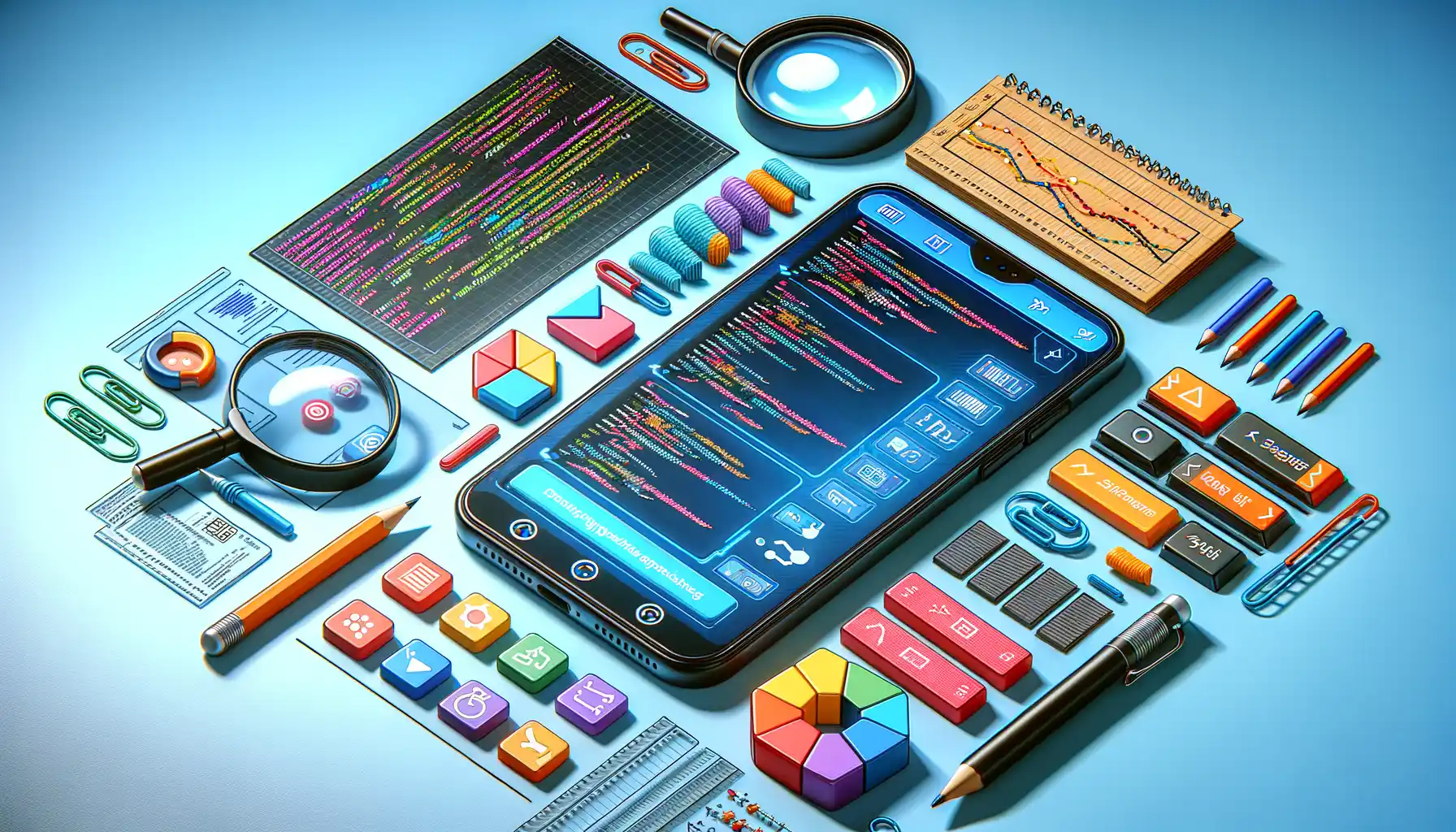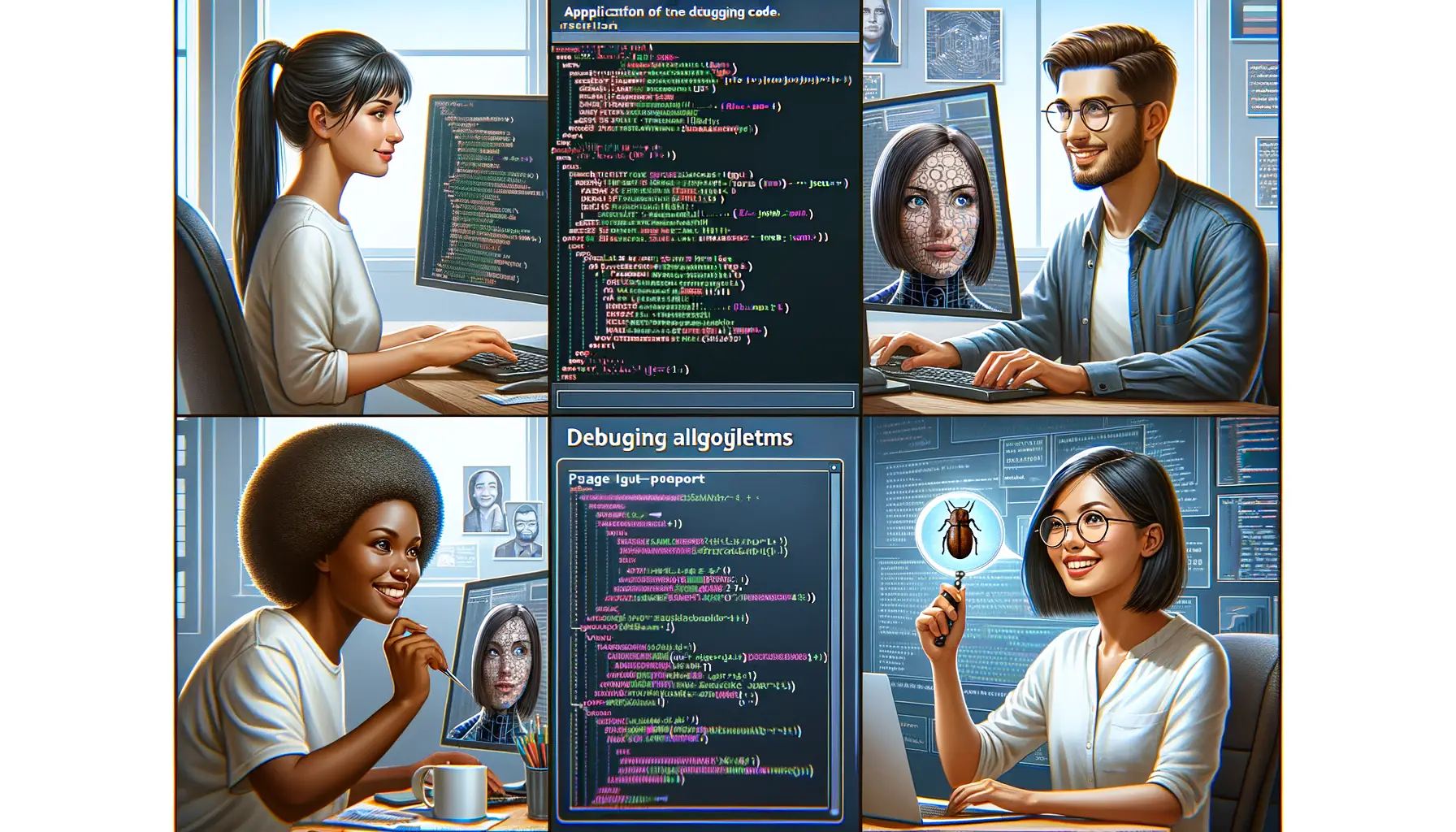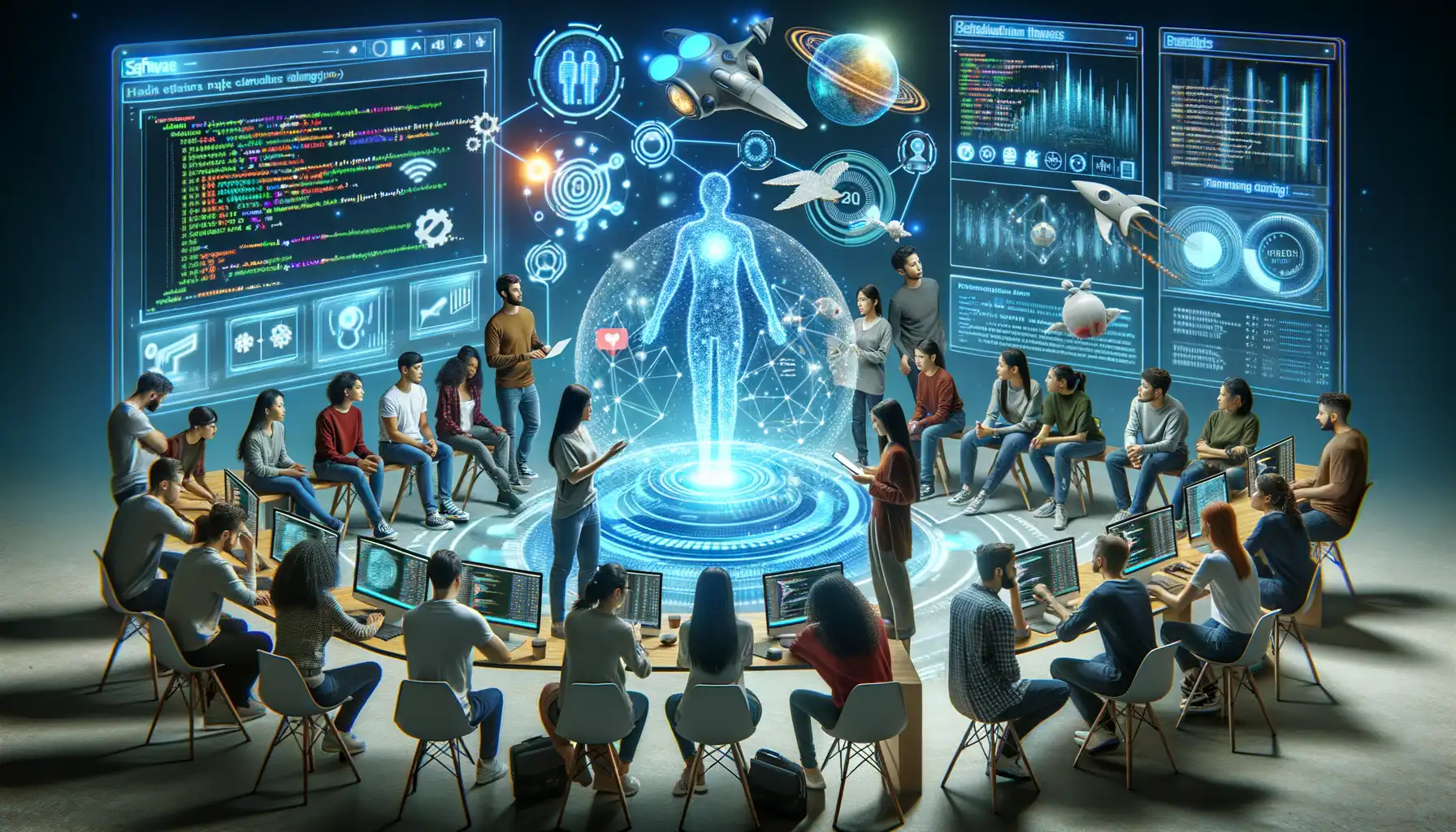Introduction to AI in Mobile App Development
Have you ever wondered how your favorite apps get so smooth and flawless, like butter on warm toast? Well, a big part of that magic lies in identifying and fixing issues before they ever reach your screen. Enter Artificial Intelligence (AI), the quiet superhero revolutionizing mobile app development. Gone are the days of painstakingly combing through long, cryptic strings of code to squash bugs. AI has arrived as the developer’s best friend, equipped with sharp eyes, smart brains, and—dare I say—a touch of personality.
The Game-Changer: Why AI Is the Developer’s Secret Weapon
Imagine having a sidekick who tirelessly monitors every single snippet of your code, catching errors before you even notice something’s wrong. That’s what AI does for developers. But it’s not just about finding problems—it’s about unleashing speed and precision. With AI, developers have tools that can:
- Predict potential issues based on patterns and past data.
- Suggest real-time fixes that save hours of trial and error.
- Automate repetitive debugging tasks so developers can focus on the big picture.
Think of it this way: AI turns the debugging process from an exhausting treasure hunt into a guided tour with a flashlight and a map.
Beyond the Basics: AI Thrives on Complexity
What makes AI particularly fascinating is its ability to thrive where humans struggle. Take, for example, debugging the dense, intricate code of high-performing apps like social networks or gaming platforms. Here, AI excels by analyzing massive datasets, spotting bugs in milliseconds, and even predicting crashes before they happen. It’s like having a visionary artist who not only paints but also anticipates where the canvas might tear.
All this adds up to one undeniable truth: in the creatively chaotic world of mobile app development, AI transforms chaos into clarity. And frankly, it’s a little awe-inspiring to watch it work.
How AI Enhances Debugging Efficiency

Boosting Precision and Speed in Debugging
Let’s face it, debugging can feel like searching for a needle in a haystack. But what if the haystack started pointing you toward the needle? That’s exactly what AI is doing for mobile app developers. With the ability to sift through massive swaths of code in seconds, AI doesn’t just save you time—it spares your sanity.
By analyzing patterns and detecting anomalies that might take human eyes hours (or even days) to catch, AI tools pinpoint problem areas with laser-like precision. Gone are the days of slogging through endless trial-and-error. Instead, imagine an assistant whispering, “Hey, this line of code looks off—check it out.”
- Error Prediction: AI can predict where bugs are likely to occur before they cause havoc.
- Automated Suggestions: Fix recommendations pop up faster than you can grab your coffee!
Simplifying Complex Code Challenges
Have you ever stared down a tangled web of code, unsure where to even start? AI thrives in these moments. It deconstructs complex dependencies and identifies how one line impacts the whole system. Think of it as having a map in a maze—not just any map, but one that updates the moment the walls shift.
And the best part? AI learns from past issues. So, if your app faces a crash caused by a memory leak today, it remembers and flags similar risks in the future. It’s like your very own debugging superhero, minus the cape.
Key AI Tools for Debugging Mobile Apps

AI Tools Transforming Debugging into a Smoother Ride
Ever felt like debugging mobile apps is searching for a needle in a haystack? AI tools are here to change the game. These aren’t just fancy gadgets—they’re your new best friends, tirelessly combing through lines of code so you don’t have to. Let’s dive into a few standout solutions making waves:
- Sentry: Think of it as your app’s personal watchdog. Sentry zeroes in on performance issues and crashes, providing you not just the ‘what,’ but also the ‘why’—often before users even notice something’s off.
- DeepCode: This isn’t your average code review tool. It leverages cutting-edge AI to detect bugs *and* suggest fixes, almost like having a coding mentor whispering wisdom in your ear.
- Firebase Crashlytics: Lightweight yet powerful, this tool focuses on real-time crash reporting. It’s built to keep developers in the loop, sending instant insights when things go sideways.
Your Secret Weapon for Error-Free Code
Imagine working with a partner who doesn’t sleep, forget, or miss the small stuff—that’s what tools like Bugsnag bring to the table. Bugsnag specializes in analyzing error impact. Instead of drowning in endless logs, you get actionable data—like a priority list, but smarter.
Meanwhile, TabNine and its AI-powered autocomplete features are there to prevent mistakes in the first place. Think of it as having GPS for your code; it steers you away from common pitfalls before they become detours.
With these tools, debugging stops feeling like a chore and starts feeling like you’re unlocking hidden treasures buried in your codebase. Each tool, in its own way, helps you focus less on firefighting and more on creating apps your users will adore.
Real-World Examples of AI in Debugging

How AI Turns Bug Squashing into a Superpower
Picture this: You’re knee-deep in code, hunting that one elusive bug that’s breaking your app. It feels like looking for a needle in a haystack, right? But then, enter AI-powered debugging tools, swooping in like a superhero with X-ray vision. These tools don’t just help you find bugs—they annihilate the frustration of endless trial-and-error.
Take Uber, for example. With millions of users relying on their app daily, any glitch can snowball into chaos. To stay ahead, they implemented AI algorithms capable of analyzing crash reports and pinpointing the exact code snippet causing issues. This cut down their debugging time by almost half!
And it’s not just tech giants. Have you heard about smaller teams using GitHub Copilot? Imagine having an AI sidekick that predicts your next move in code like it’s reading your mind. Developers have shared how Copilot helped them quickly resolve complex logic errors by offering instant suggestions—and even flagging potential problems before they existed.
- Microsoft Teams: AI-driven monitoring tools ensure their app performs smoothly during live meetings—real-time problem-solving at its finest.
- Tinder: By using machine learning, they squash bugs tied to personalized user recommendations faster than ever.
With these real-world wins, it’s clear: AI isn’t just a tool—it’s becoming every developer’s secret weapon.
Future Trends and Considerations for AI in Debugging

AI’s Next Big Steps in Debugging
The future of AI in debugging mobile apps is nothing short of breathtaking. Imagine a world where your debugging assistant doesn’t just point out bugs but predicts them before they even occur. That’s exactly where we’re heading. Machine learning models are getting smarter, diving deep into patterns of user behavior and code structures to flag potential pitfalls before they become disasters.
Here’s another exciting trend: context-aware debugging. Picture this—a tool that knows not only where the error is but also why it happened, by analyzing real-time data like device performance, user inputs, and network conditions. It’s as if AI is putting together the puzzle pieces you didn’t even know existed.
- Cross-platform intelligence: Debugging tools will sync seamlessly across operating systems, so whether it’s iOS or Android, no bug gets left behind.
- Collaborative AI models: Teams will soon share AI-driven insights in real time, making debugging a community effort rather than a solitary slog.
Ethical Challenges on the Horizon
With great power comes, well, a tangle of moral dilemmas. As these tools grow more powerful, questions about data privacy and ethical AI usage loom large. For instance, if an AI tool scans user data to locate a bug, who ensures that information stays safe? These aren’t just hypotheticals; they’re challenges developers and companies must tackle head-on.
It’s an exhilarating time to be a developer. The future isn’t written yet—but with AI, it’s certainly being debugged faster.






